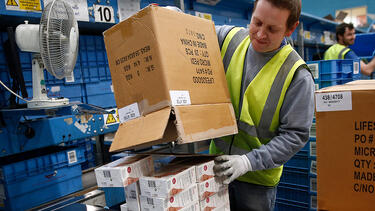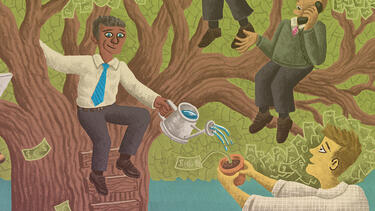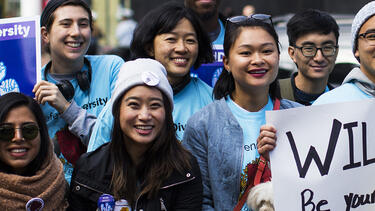Research
Despite Job Losses, U.S. Benefitted from Surge of Trade with China
When Chinese imports sharply rose from 2000 to 2007, American manufacturing jobs suffered, but other sectors benefitted, leading to a net increase in U.S. welfare.

Study Finally Reveals How Many Cooks It Takes to Spoil the Broth
New research co-authored by Yale SOM’s Taly Reich looks at how we perceive collaborations of different sizes, and what those perceptions mean for how companies describe the creation of their products.

For Top Venture Capital Firms, Success Breeds Success
Most investing success is short lived, but venture capital is an exception, with top VCs beating the average year after year. A new study finds that consistent returns owe as much to a firm’s reputation and early luck as the smarts of its employees.

Study Leverages Peer Effects to Encourage Adoption of Hygienic Latrines
Consumers often aren’t willing to take a chance on a new product until their neighbors do. A new study investigated the use of targeted subsidies that leveraged such "peer effects" to spark adoption of hygienic latrines, which reduce the spread of pathogens.

Companies Invest in Startups to Repair Weaknesses
A study by Yale SOM’s Song Ma shows that companies tend to invest in startups when they are struggling, in order to gain access to innovation and shore up an area of weakness.

Stereotypes of Asian Americans Skew Estimates of Racial Wealth Gap
According to Yale SOM's Michael Kraus, the stereotype of high-achieving Asian Americans may obscure the needs of communities living in poverty and contribute to bias against other groups.

To Improve the Accuracy of Prediction Markets, Just Ask
In theory, prediction markets give the most accurate possible forecasts because they incorporate all available information. But a study by Yale SOM’s Jason Dana and his co-authors showed that in some cases, forecasts can be improved by simply asking people what they think will happen.

For CEOs, Integrity Is the Best Policy
A new study co-authored by Yale SOM’s Thomas Steffen analyzed tens of thousands of shareholder letters to reveal whether executives’ actions typically live up to their promises. It found that firms whose CEOs scored well on this measure of integrity tended to perform better, while facing lower audit fees.

Kidney Exchange Registries Should Collaborate to Save More Lives
Yale SOM’s Vahideh Manshadi and her co-authors examined the methodology of kidney exchange registries, and found that registries can find more matches if they collaborate to build a unified database.

Forgiving Debts May Boost Employment During Recessions
In an analysis of the Great Recession, Yale SOM's Paul Goldsmith-Pinkham and his co-authors found that debt relief increased employment by up to 2% nationwide.
